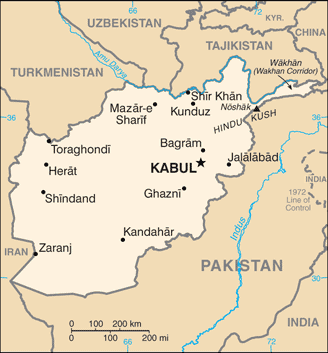Drug policy
This National Drug Action Plan outlines Afghanistan’s intention to pursue a balanced, comprehensive, coordinated, and sustainable approach to combating illegal drug production, trade, and usage. The three key strands to this approach are to:
- Decrease the cultivation of opium poppy.
- Decrease the production and trafficking of opiates.
- Reduce the demand for illicit drugs in Afghanistan and increase the provision of treatment for users.
Treatment and Recovery Services
There is a specific government unit responsible for alcohol and drug use disorders however there is only a budget line for drug use disorders.
- Inpatient medical detoxification for alcohol and drug.
- Beds available for drug use disorders only.
- Pharmacotherapy used for treatment of alcohol withdrawal.
- NGOs in country focussing on alcohol and drugs.
- 40 residential drug treatment centres in Afghanistan, seven drop-in (outreach) centres operate throughout the country and ten community centres which are funded by the Counter Narcotics Trust Fund. Sixteen of these centres provide residential treatment for men and outpatient services for women. Two services provide treatment for adolescents.
Prevention Services
There is a government unit responsible for prevention of SUDs. Taking into account their approach to tackling illegal drugs, their main objectives in terms of prevention are:
- Objective 1: Provide more favourable alternatives to poppy cultivation for farmers, laborers, and rural communities.
- Objective 2: Increase targeted eradication to levels that, when combined with law enforcement efforts, will significantly deter future poppy cultivation.
- Objective 3: Improve the government’s ability to disrupt and dismantle illegal drug organisations.
- Objective 4: Enforce anti-money laundering laws and increase the seizure and forfeiture of proceeds and instrumentalities related to the drug trade.
- Objective 5: Increase regional and international cooperation on counter narcotics, particularly in the areas of law enforcement and criminal justice.
- Objective 7: Increase drug use prevention programs across a range of institutions, including schools, mosques, the workplace, and media.
- Objective 8: Increase communication campaigns to reduce drug use and warn of the negative consequences of planting opium poppy.
- Increase communication campaigns to reduce drug use and warn of negative consequences of planting opium poppy targeted at appropriate seasons to help convince farmers to plant alternative crops.
- The government will take measures to address the underlying factors behind the use of illicit narcotics in rural areas—which include a lack of access to licit analgesic medicines—by employing religious, family health, and community messaging.
- With regards to harm reduction Afghanistan have needle exchange programmes community based and in prisons.

